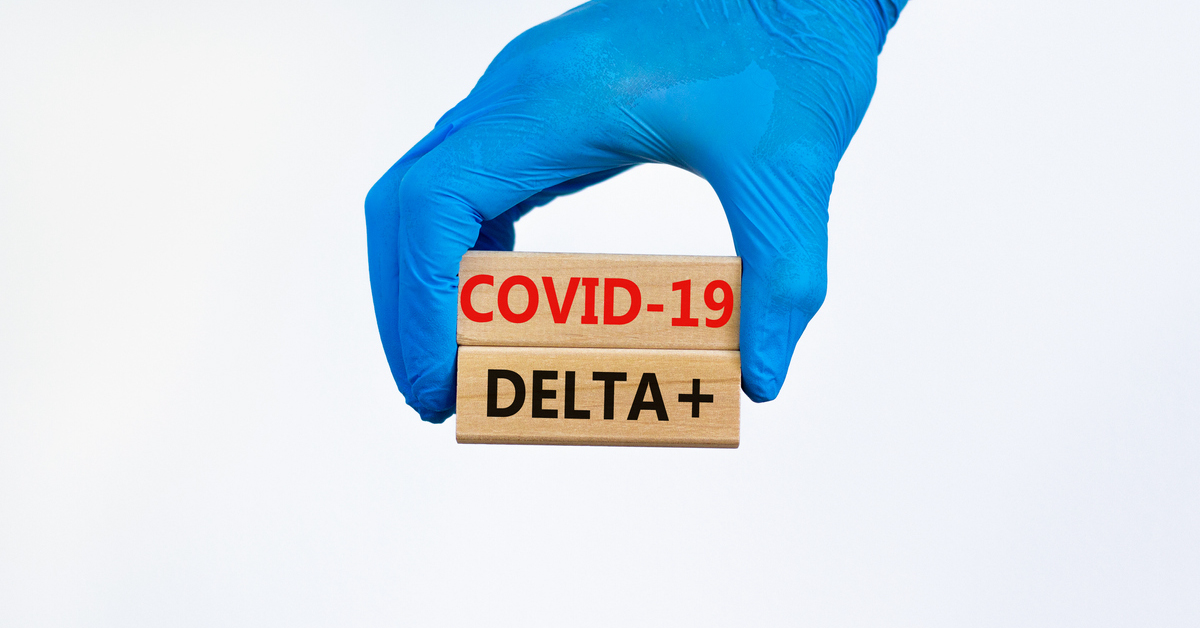After more than a year of the COVID-19 pandemic, it seemed that there was light at the end of the tunnel. Widely available vaccines were giving people hope of returning to their usual pre-COVID lives. And the easing of social distancing restrictions, and return to in-person work made things feel more normal. However, with the emergence of the more contagious Delta variant, there are still many uncertainties when it comes to the future. Staying informed and up to date on all the latest developments can help you keep yourself and your family safe. Here is all the latest information about COVID-19 and the Delta variant.
What is the Delta Variant?
All viruses constantly change through mutation and form new variants. Sometimes new variants emerge and then disappear, and other times they persist. Numerous variations of the virus that causes COVID-19 are currently being tracked in the United States and globally.. There have been several variants of interest due to their severity and transmission rate. One is the Delta variant.
The Delta variant was first detected in India in late 2020 and is now reported in 96 countries. The Centers for Disease Control and Prevention (CDC) described Delta as more transmissible than the common cold and influenza, as well as the viruses that cause smallpox, MERS, SARS, and Ebola.
How Does the Delta Variant Spread?
The Delta variant, like other COVID-19 variants, is spread primarily from person-to-person respiratory droplets. However, according to the CDC, the Delta Variant is nearly twice as contagious as previous variants.
Unvaccinated people remain the greatest concern for the continuous spread of the Delta variant because they are more likely to contract and spread the virus.
Vaccinated individuals can have “breakthrough” infections. However, they are likely to be contagious for a shorter period than unvaccinated individuals.
What are the Symptoms of the Delta Variant?
The Delta variant can present very similarly to the original strain of COVID-19. Here are the most common symptoms:
- Fever or chills
- Cough
- Shortness of breath or difficulty breathing
- Fatigue
- Muscle or body aches
- Headache
- New loss of taste or smell
- Sore throat
- Congestion or runny nose
- Nausea or vomiting
- Diarrhea
It’s important to note that vaccinated individuals are more likely to exhibit symptoms similar to the common cold and include runny nose and sneezing, and their symptoms are generally milder.
What is the Best Way to Prevent the Delta Variant?
Centers for Disease Control and Prevention says that vaccines are still one of the most effective measures against the Delta Variant. According to CDC, “the COVID-19 vaccines authorized in the United States are highly effective at preventing severe disease and death, including against the Delta variant. But they are not 100% effective, and some fully vaccinated people will become infected (called a breakthrough infection) and experience illness. For such people, the vaccine still provides them strong protection against serious illness and death.”
Additionally, layered prevention strategies, such as wearing masks, are also recommended to reduce the transmission of the Delta variant.
How Can You Tell if You Have the Delta Variant?
To determine if you have the Delta variant, your doctor would have to run a genomic sequencing test. The genomic sequencing decodes the coronavirus’ set of genes, searches for new mutations, and matches the genes to known variants.
Knowing whether or not you have COVID-19 is perhaps even more important than knowing which strain you have. Early diagnosis can help prevent you from spreading the virus to others and allow your health providers to monitor your condition from the beginning.
UAB Medical West Can Help You Stay Informed and Protected
Staying informed and being proactive about your health is essential for keeping yourself and your family safe. If you are interested in learning more about the Delta variant or want to receive the COVID-19 vaccine to protect yourself and your loved ones, please don’t hesitate to contact us today.
